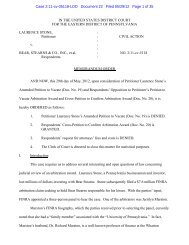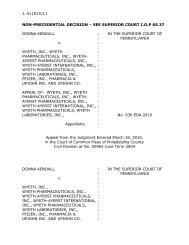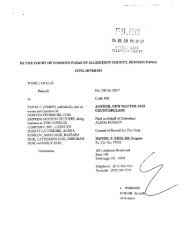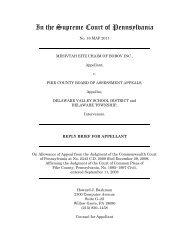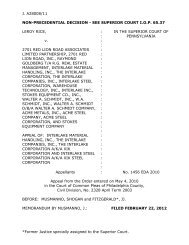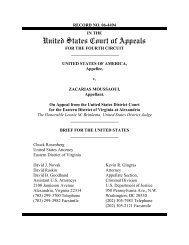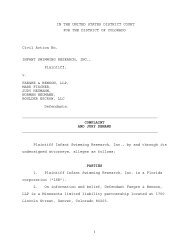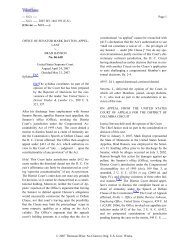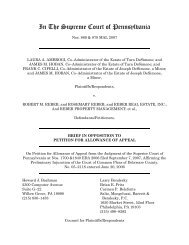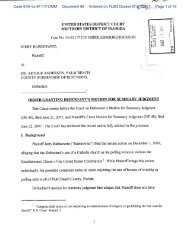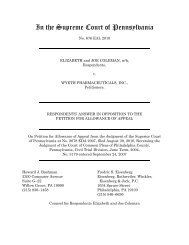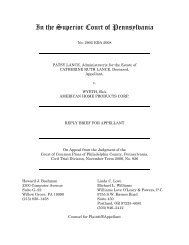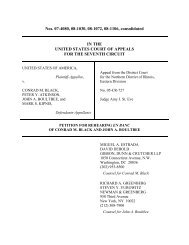DePinto v. Bayonne Board of Education
DePinto v. Bayonne Board of Education
DePinto v. Bayonne Board of Education
Create successful ePaper yourself
Turn your PDF publications into a flip-book with our unique Google optimized e-Paper software.
Case 2:06-cv-05765-JAG-MCA Document 18 Filed 09/19/2007 Page 8 <strong>of</strong> 28<br />
We distill the following from Tinker, Fraser, and [Kuhlmeier]: (1)<br />
schools have wide discretion to prohibit speech that is less than<br />
obscene – to wit, vulgar, lewd, indecent or plainly <strong>of</strong>fensive speech;<br />
(2) if the speech at issue is “school-sponsored,” educators may censor<br />
student speech so long as the censorship is “reasonably related to<br />
legitimate pedagogical concerns”; and (3) for all other speech,<br />
meaning speech that is neither vulgar, lewd, indecent, or plainly<br />
<strong>of</strong>fensive under Fraser, nor school-sponsored under [Kuhlmeier], the<br />
rule <strong>of</strong> Tinker applies. Schools may not regulate student speech<br />
unless it would materially and substantially disrupt classwork and<br />
discipline in the school.<br />
Guiles ex rel. Guiles v. Marineau, 461 F.3d 320, 325 (2d Cir. 2006) (citations omitted). This<br />
articulation and interpretation is supported by the Third and Ninth Circuits, as well. Chandler v.<br />
McMinnville Sch. Dist., 978 F.2d 524, 529 (9th Cir. 1992) (“We have discerned three distinct<br />
areas <strong>of</strong> student speech from the Supreme Court’s school precedents: (1) vulgar, lewd, obscene,<br />
and plainly <strong>of</strong>fensive speech, (2) school-sponsored speech, and (3) speech that falls into neither<br />
<strong>of</strong> these categories. We conclude . . . that the standard for reviewing the suppression <strong>of</strong> vulgar,<br />
lewd, obscene, and plainly <strong>of</strong>fensive speech is governed by Fraser, school-sponsored speech by<br />
Kuhlmeier, and all other speech by Tinker.”) (citations omitted); Saxe, 240 F.3d at 214 (“To<br />
summarize: [u]nder Fraser, a school may categorically prohibit lewd, vulgar or pr<strong>of</strong>ane language.<br />
Under Kuhlmeier, a school may regulate school-sponsored speech . . . . Speech falling outside<br />
these categories is subject to Tinker’s general rule . . . .”).<br />
The Supreme Court’s recent holding in Frederick v. Morse, does not change this basic<br />
3<br />
framework, or the applicable analyses for the trio. Instead, Morse adds a third exception to<br />
Tinker, allowing a school to censor speech that is “reasonably viewed as promoting illegal drug<br />
3 Indeed, Chief Justice Roberts traces Tinker, Fraser, and Kuhlmeier in a similar fashion.<br />
See Morse, 127 S. Ct. at 2626-28.<br />
8



